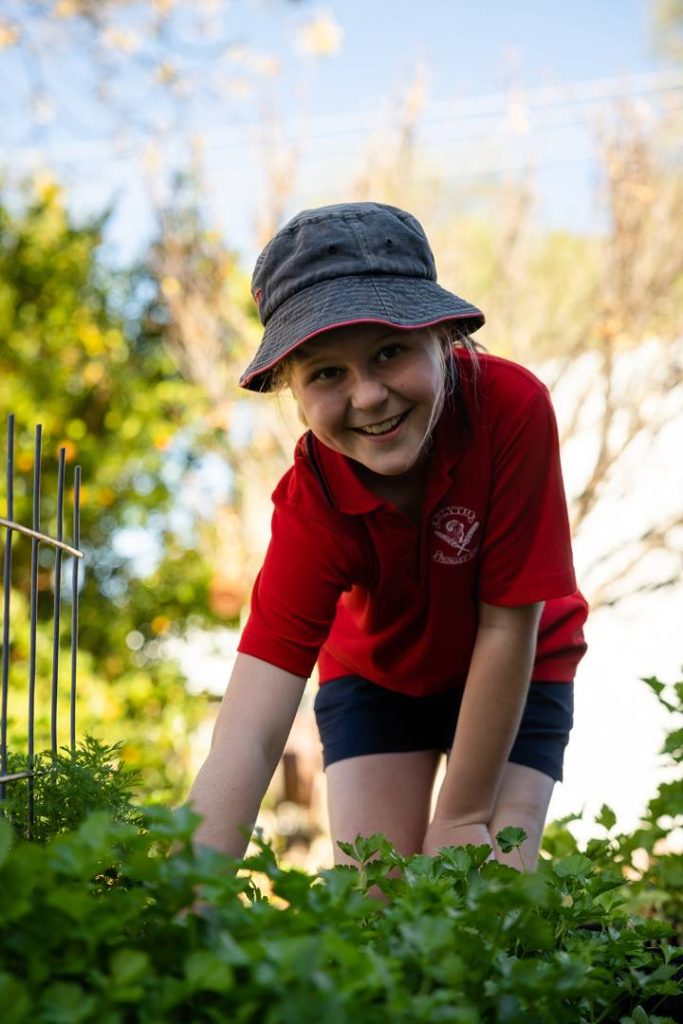Teaching Methodology:
Currently there are 3 classes that have students usually within a Junior Primary, Middle Primary and Upper Primary setting with shared learning spaces.
These classes meet in the morning and afternoon in Home Groups, but on some days, students have opportunities to work with other students in whole-school learning programs.
Teaching is differentiated for the needs of learners, with SSO support offered within the class setting. Teachers work with their students to set meaningful goals for both their academic and wellbeing success, and these are reviewed and reported to parents/carers.
Metacognition and Higher Order Thinking Skills as a means of increasing more students into higher bands is also a whole school focus embedded within SIP Goals.
Blyth Primary is involved in Regional ICT Support through The Department for Education, and each student from Year3-7 has a laptop assigned for their learning. Students do some learning online, and all students R-7 have their own email accounts and logins. Reception to Year 2 students have IPads and laptops to access within their class.
Student Assessment Procedures and Reporting:
Student assessment is reported against the Australian Curriculum Standards formally written twice per year, with an Aquaintance Night held in term one, and Parent/Carer/Student interviews in term 3. In term one a student
“Snapshot” report also is sent home after the first 6 weeks of school to indicate to families how students have settled into the new school year. Parents/Carers are encouraged to contact the school if they have any matters they wish to discuss.
The Australian Curriculum Comprises:
- The Arts
- Students are involved in both the Performing Arts – Dance & Drama, taught as a specialist area, with students having access to live performances, and the Visual Arts taught throughout classes.
- English
- Our priority is the learning of Reading to enable our students to “Read to learn.” Oral Language development features heavily to support students in the Junior Primary with their start in their learning journey.
- Health and Physical Education
- Currently taught as a specialist subject with students having access to Sports Day, Swimming Lessons, Swimming Carnival, visiting sports clinics, and if appropriate SAPSASA competition for older students.
- Humanities & Social Sciences (HASS)
- Currently taught as a specialist subject giving students a Historical perspective of the world around them, and the interactions with democracy and being an Australian Citizen within our environment and world.
- Languages other than English
- Currently taught as a specialist subject – Japanese, with weekly learning about language and culture through Open Access & a school-based teacher.
- Mathematics
- A whole school approach towards teaching our students not only the facts but how to apply logic and Mathematical Reasoning toward problem solving.
- Agriculture and Science
- Currently taught as a Specialist subject with a hands-on approach toward learning. All students have the opportunity to attend Science excursions, Agricultural relevant excursions, and workshops to enhance their thinking about their Scientific World.
- Technologies
- Students enjoy using equipment such as Laptops, iPads, ITVs, 3D printers to grow their learning in Digital Technologies in classes for research and other programs as required embedded throughout the curriculum, along with an activity-based approach toward Design and Technology problem solving.
Special Curriculum Features:
- Small Class Groupings
- Small class groupings have enabled significant individual programming and flexible learning for students.
- Tiers of Intervention
- A whole school approach toward our SIP (School Improvement Plan) goals has enabled students to access Tiers of Intervention based upon Literacy needs to progress student learning.
- Lesson Swaps
- Specialist subjects have been taught by teachers sharing their expertise across all year levels in what is known as “Lesson Swaps.” Specialized lessons of P.E & Health, HASS, Japanese, Agricultural Science, and The Arts are provided to students.
- School Camp
- A whole school camp based on curriculum outcomes has been traditionally organized biannually.
- Cultural Awareness
- Students participate in National Reconciliation Week activities as a part of understanding Aboriginal & Torres Strait Islander Cultural Awareness. They participate in other events as they are able to be accessed, and inclusion of all cultures is a prominent teaching point.
- Nature Play
- Nature Play is a feature of both our Academic and Social/Wellbeing learning for all students as we acknowledge The Natural Environment as pivotal in a child’s development.
- Community Engagement
- Students participate in community-based activities and events if appropriate, and have access to the local cinema, and sporting venues.
